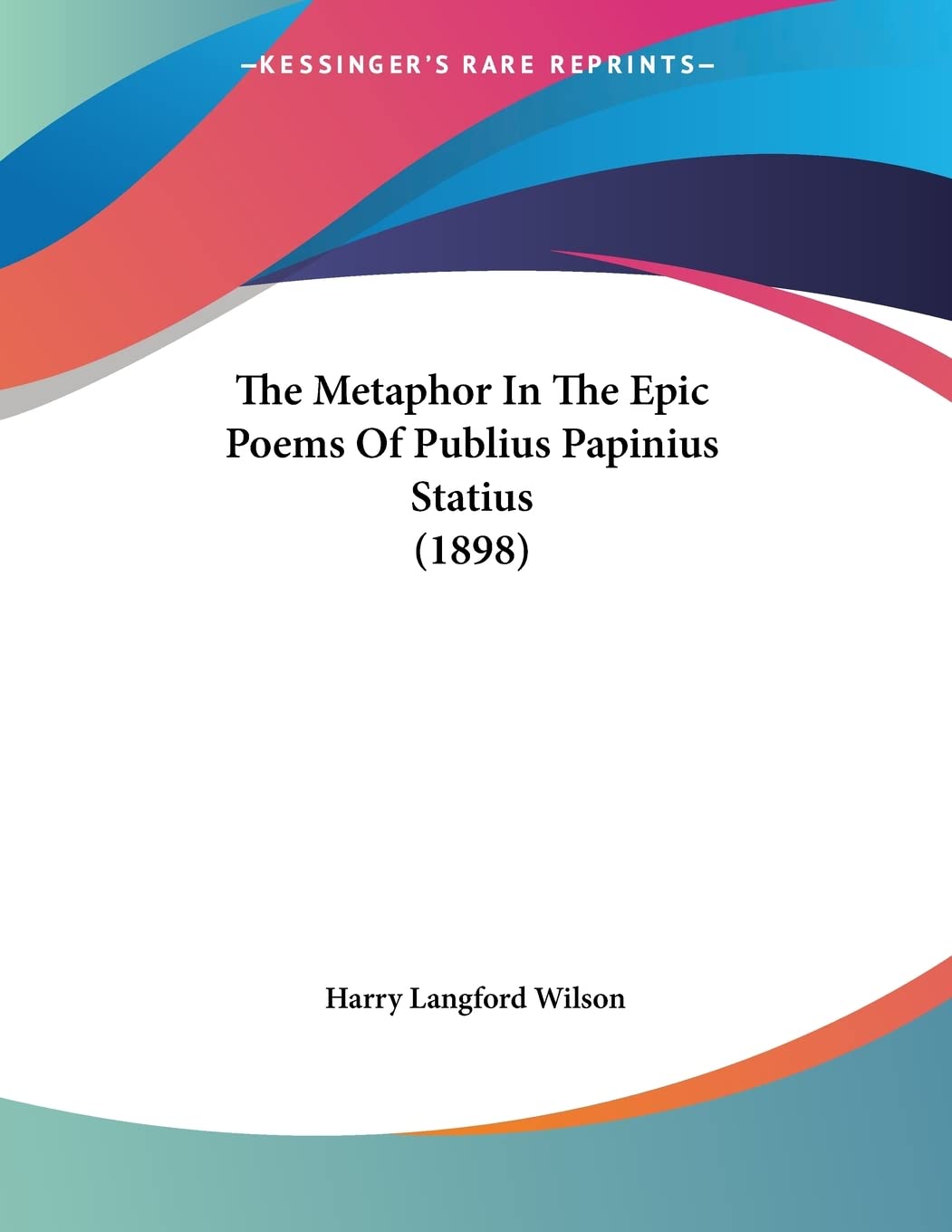The book “”The Metaphor In The Epic Poems Of Publius Papinius Statius”” by Harry Langford Wilson was published in 1898. It is a literary analysis of the use of metaphor in the epic poems of the Roman poet Publius Papinius Statius. The book explores how Statius uses metaphor to convey complex ideas and emotions in his works, particularly in his two epic poems, “”Thebaid”” and “”Achilleid””. Wilson examines the various metaphors used by Statius and analyzes their meaning and significance in the context of the poems. The book also provides a historical and cultural background to Statius’ work, discussing the literary traditions and conventions of the time. It also explores the influence of other poets, such as Virgil and Ovid, on Statius’ use of metaphor. Overall, “”The Metaphor In The Epic Poems Of Publius Papinius Statius”” is a detailed and scholarly analysis of the use of metaphor in the works of a significant Roman poet. It provides insights into the literary techniques of the time and sheds light on the cultural and historical context in which these works were written.This scarce antiquarian book is a facsimile reprint of the old original and may contain some imperfections such as library marks and notations. Because we believe this work is culturally important, we have made it available as part of our commitment for protecting, preserving, and promoting the world’s literature in affordable, high quality, modern editions, that are true to their original work.
The Metaphor In The Epic Poems Of Publius Papinius Statius (1898)
$22.88
This book supports literary studies by providing a detailed analysis of metaphor in classical epic poetry.
Additional information
| Weight | 0.141 lbs |
|---|---|
| Dimensions | 21.6 × 0.2 × 27.9 in |






Reviews
There are no reviews yet.